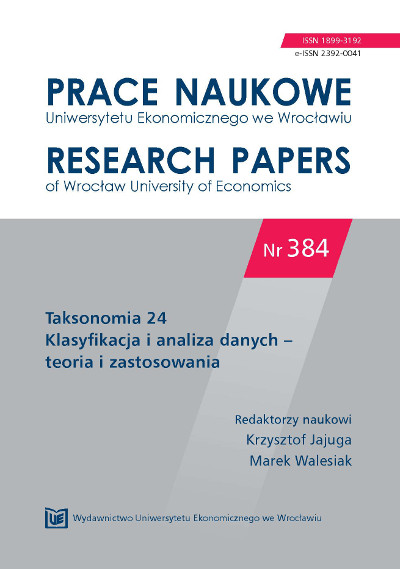Zastosowanie teorii zbiorów rozmytych do identyfikacji pozafiskalnych czynników ubóstwa
Applying the fuzzy set theory to identify the non-monetary factors of poverty
Author(s): Marta Dziechciarz-Duda, Klaudia PrzybyszSubject(s): Economy
Published by: Wydawnictwo Uniwersytetu Ekonomicznego we Wrocławiu
Keywords: measurement of poverty; theory of fuzzy sets; fuzzy clustering
Summary/Abstract: There is a practical problem of identifying the poverty and the measurement of the level of poverty. A lot of methods of measuring poverty and identifying the poor people can be seen in the literature and research. A relatively new approach seems to be taking into account the multi-dimensionality by applying the fuzzy set theory to the measurement of poverty. This allows to define the degree of membership to a group of poverty or non poverty. The main goal of this article is to implement the fuzzy set theory approach to the definition and evaluation of poverty. It is assumed possible to identify psychological factors, generally classified as unmeasurable. This can be done by identifying the differences, for example in the perception of situation of households, which in varying degrees belong to the group of the poor. As it is known, a lot of families who are entitled to apply for social assistance, do not use it. The identification of the factors determining the behavior of households considered as poor, can be the main element in the creation of future instruments of social policy. The study was conducted on data from the Social Diagnosis 2014.
Journal: Prace Naukowe Uniwersytetu Ekonomicznego we Wrocławiu
- Issue Year: 2015
- Issue No: 384
- Page Range: 75-83
- Page Count: 9

